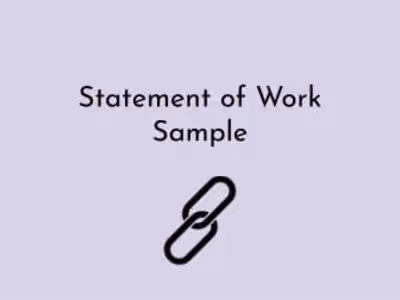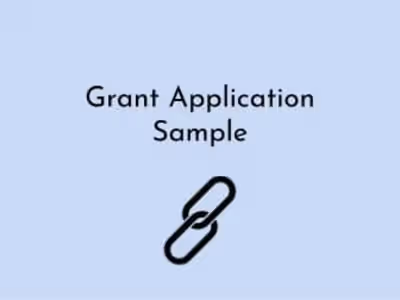Policy Paper
Organized Trolling as Psychological Warfare: Russia - An Overview (2023)
Excerpt (pgs. 1-5)
Background
Trolls/Trolling
Troll: “An individual who (a) starts and/or exacerbates disruptive conflict online… (b) is often deceptive [through the use of alternative social profiles, or “personas”]… (c) is tactically aggressive to increase emotional responses; and (d) disturbs regular discussions on online platforms.” (Volkmer, 2023)
Troll Farm/Factory: A group of individuals institutionalized by a political party or organization to create confusion online, primarily in order to interfere with the political process.
(Mis)(Dis)information: False information, narratives, or facts intended to deceive; Often used as propaganda for political purposes.
Trolling differs from other kinds of propaganda in that it is often done with no other purpose than to create an emotional reaction in the audience. Even when trolling is weaponized for a cause, such as in the case of troll factories, this emotional reaction does not need to align with the cause. The reaction is the goal. For example, the Internet Research Agency (IRA), a troll farm, wanted to promote political confusion in the United States, so they would portray themself as contradictory activist organizations online. They then would arrange protests and counter protests at the same time and location. The purpose was confusing the political process and generating animosity between parties. Despite no evidence that the IRA was involved in the events on August 11th in Charlottesville, VA, their attempt to replicate the protests and ensuing political violence on that day through a false account known as “Resistors” suggests that political violence may have also been an ambition.
Organized trolling is a two-part process: restricting or corrupting legitimate media and disseminating narratives that feed conspiracies. Legitimate media may be restricted through political means or through the use of spam to co-opt comments sections or platform-based broadcasts. Some trolls have been recorded using threats to try to intimidate legitimate media personalities into promoting false narratives. Legitimate media may be corrupted through the interception of headlines through social media or translation software to promote different attitudes. For example, a headline reading “Activists hand out protest materials before march against war,” becomes “Instigators hand out torches before march against veterans,” and vice-versa depending on the target audience. Alternatively, a more direct route that is used by trolls is the use of open-use platforms like social media or blogging websites to share narratives or hijack currently circulating narratives for their own purposes. Q, the anonymous founder of the Q-Anon movement, posted a series of open-ended theories to social media with the encouragement to “do your own research” to fill in the gaps in information. These theories would have no substantive backing, but the process of solving the puzzle would manufacture investment in the end result. Q has no confirmed association with Russia, but the IRA has repeatedly shared and built upon Q-associated theories. Similarly, many trolls will start controversial arguments online in an effort to manufacture investment in a certain position. This allows them to control both narratives and the reactions to the narratives.
Psychological Warfare
Psychological Warfare: “The planned use of propaganda and other psychological operations to influence the opinions, emotions, attitudes, and behavior of opposition groups.”(Rand, 2024)
History of Trolls Associated with Russia
Russia was first publicly associated with the use of organized trolls in the 2014 assault on Crimea. Because of Crimea’s geographical closeness to Russia and its cultural similarities, Russia used troll farm(s) to disseminate pro-Russian propaganda in an effort to make the annexation a more voluntary assimilation.
Russia has used paid trolls to promote government interests through mainstream espionage agencies and loosely politically-affiliated organizations. The Russian military’s espionage branch, the Main Intelligence Directorate (GRU), has been an active participant in trolling efforts. In 2024, a grand jury in Maryland indicted five GRU officers and one civilian contractor (based in Russia) with mounting cyber attacks on Ukraine. These attacks were intended to disrupt narratives about Ukrainian strength and undermine public support of Ukraine’s economy. GRU has also been confirmed to have used two online personas, Guccifer 2.0 and DCLeaks.com, to actively disseminate stolen documents from the Democratic National Committee. Russia was also home to the IRA, a “troll farm” funded by one of Vladimir Putin’s closest associates and the leader of the Wagner Group, Yevgeny Prigozhin. The IRA has been publicly unaccounted for since 2020, and Prigozhin passed away in a plane crash in 2023. However, so-called “Kremlin Trolls” have been discovered promoting pro-Russia rhetoric in reference to the Russo-Ukrainian war on social media sites, including Tik-Tok, Facebook, and Instagram, as recently as 2024. Trolls enabled with artificial intelligence software have also been discovered on Tik-Tok, X, Facebook, and other websites attempting to influence the 2024 presidential election.
Restrictions on Legitimate Media
Parties
The United States Department of State has identified pressures from the Kremlin and Vladimir Putin to be a primary contributing factor to the restriction of mainstream media in Russia. Laws were used during 2022-2023 to prevent open expression in the media, including laws preventing “the distribution of “propaganda on nontraditional sexual relations”” to target liberal media sites, “inciting minors to participate in dangerous activities” to target sites attempting to organize demonstrations, or “cooperation with “undesirable foreign organizations”,” a law that allows the Russian government to add local and international media organizations to a growing list of “undesirable organizations.” Furthermore, many NGOs that were critical of the Kremlin were shut down or banned from the country, and many independent media sites were shut down as well.
Roskomnadzor is Russia’s media oversight agency. It has been charged directly with the enforcement of laws that restrict the “dissemination of socially significant information.” Roskomnadzor also had authority to put pressure on media through the use of a “warning” system (three warnings constitute grounds for blocking or banning the media source from Russia) and was cited as a source of pressure on national and international social media to unblock or unban certain Russia-positive pages or accounts.
Russia passed a law requiring all internet service providers (ISPs) install data nets for all customer information. They then filtered the information directly to the Federal Security Service (FSB) in order to monitor messaging reaching internet users directly.
The law requiring ISPs turn over customer data extended to foreign telecommunications and tech companies, and included a provision requiring any foreign tech company with a user base exceeding half a million users have “tech ambassadors” in the country by the end of the year. Any noncompliant private entity would be banned from the country.
Dissemination of Propaganda
Parties
Vladimir Putin has been loosely associated with active troll farms since 2014, when it was uncovered that Yevgeny Prigozhin, “Putin’s Chef,” was the primary funding source for the IRA. Later, Prigozhin claimed to have founded the IRA. Additionally, the Department of Justice seized a number of internet domains that were traceable to a Russia-backed campaign known as “Doppelganger” (OPA-DOJ, 2024). This campaign occured under the direction of First Deputy Chief of Staff of the Presidential Executive Office Sergei Vladilenovich Kiriyenko, one of Putin’s senior officials.
The Main Intelligence Directorate (GRU) is repeatedly associated with trolling. In 2024, a Grand Jury in Maryland indicted five GRU officers and one civilian contractor with mounting cyber attacks on Ukraine. These attacks were intended to disrupt narratives about Ukrainian strength and undermine public support of Ukraine’s economy. GRU has also been confirmed to have used two online personas, Guccifer 2.0 and DCLeaks.com, to actively disseminate stolen documents from the Democratic National Committee.
The Foreign Intelligence Service of the Russian Federation (SVR) operates with as little media attention as manageable, but certain reports link the technology used by the troll farms, including AI, to their operations.
Tools and Platforms
Social media is a commonly used tool for trolls due to its anonymity, large audience, and general availability. Psychological warfare tactics on social media include harassing of influencers and other posters, creating pages dedicated to misinformation, altering posts to promote misinformation, organizing real-world (IRL) events in order to cause chaos or harm, and many other techniques. The IRA was found on Facebook, X (formerly Twitter), LiveJournal, and many other social media websites. As it gained popularity, Instagram became a favorite of the organization due to its emphasis on images (memes are a common tactic used in misinformation campaigns) and lack of enforcement of misinformation. Most recently, Tik-Tok, Instagram, Facebook, Twitter, and Telegram have all been named as targets of the Doppelganger troll campaign initiated by GRU and Kiriyenko. Social media can be expected to continue to be a popular choice for trolls, as limited efforts have been made to encourage corporate responsibility to ensure fair and reliable exposure to information. As social media sites are not traditional media sites, they aren’t bound by many of the ethical policies and regulation standards media sites are. Engagement is a core principle of social media and its growth strategy, and engagement is also a key goal for the majority of trolls. So long as their missions align and popular social websites aren’t incentivized to enforce misinformation policies, psychological warfare at the hands of organized trolls will almost certainly continue on these platforms.
The use of blogs and other domains is another common tool of online trolls, particularly troll farms. Domains lend credibility to online claims, and can act as a secondary source for social media campaigns. Domains are widely unregulated online, as seen when GRU posted leaked documents from the DNC on dcleaks.com, a domain they had held for several months before posting the documents. They can be discovered through social media and present themselves as reliable, or they can be discovered through the practice of cybersquatting.
Cybersquatting: the act of registering a domain that is closely related to the domain name of a reputable website with the intent of impersonating that website.
Artificial intelligence has been a more recent revelation in the community, but the enhanced capabilities of trolls and its implications for all open source programming…
Like this project
Posted Dec 10, 2024
Policy research document on niche topic with predictive conclusion
Likes
0
Views
2
Tags





